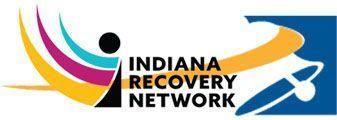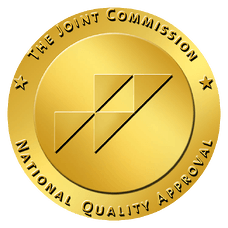Complete the pre-screen form below to initiate the admission process. Our admissions team will contact you shortly.
12-Step Programs for Drug and Alcohol Addiction
For those grappling with drug and alcohol misuse, the journey to sobriety can feel overwhelming—particularly without the right support and care. Wabash Recovery understands the challenges of overcoming addiction, which is why we emphasize the value of participating in a 12-Step recovery program. These programs create a nurturing environment that fosters healing and resilience, alongside a robust support system that individuals can depend on during their recovery journey.
In this guide, we will explore the essence of 12-Step recovery programs, including how they function, the various types available, and tips on locating a program near you. Your path to recovery begins here, at Wabash Recovery.
What are 12-Step Recovery Programs?
12-Step recovery programs, including Alcoholics Anonymous (AA) and Narcotics Anonymous (NA), provide a structured framework for individuals seeking to achieve sobriety through a series of 12 specific steps that guide them toward lasting recovery. Engaging thoughtfully with each step and fostering a strong sense of camaraderie with fellow participants has proven beneficial for individuals aiming to overcome compulsive behaviors related to drug and alcohol misuse and addiction.
The inaugural 12-Step recovery program, Alcoholics Anonymous, was founded in 1935 in Akron, Ohio, by two individuals, Bill W. and Dr. Bob S., who both faced challenges with alcohol use disorder. Together, they began their work at Akron City Hospital, assisting those struggling with alcoholism. Before long, AA groups proliferated across the nation, as individuals seeking sobriety embraced the 12-Step approach created by these two pioneers.
What are the 12 Steps of Recovery?
Grounded in the conviction that addiction is a progressive condition marked by an individual’s lack of control over drugs or alcohol, the 12 Steps aim to assist those battling addiction or substance misuse in reclaiming authority over their lives in a deliberate, mindful way.
The 12-Steps are as follows:
- We admitted we were powerless over alcohol – that our lives had become unmanageable.
- Came to believe that a Power greater than ourselves could restore us to sanity.
- Made a decision to turn our will and our lives over to the care of God as we understood him.
- Made a searching and fearless moral inventory of ourselves.
- Admitted to God, to ourselves, and to another human being the exact nature f our wrongs.
- Were entirely ready to have God remove all these defects of character.
- Humbly asked Him to remove our shortcomings.
- Made a list of all persons we had harmed, and become willing to make amends to them all.
- Made direct amends to such people wherever possible, except when to do so would injure them or others.
- Continued to take personal inventory and when we were wrong promptly admitted it.
- Sought through prayer and meditation to improve our conscious contact with God as we understood Him, praying only for knowledge of His will for us and the power to carry that out.
- Having had a spiritual awakening as the result of these Steps, we tried to carry this message to alcoholics, and to practice these principles in all our affairs.
How Do 12-Step Programs Work?
It is important to recognize that all 12-Step meetings differ to some extent; however, they all share the common goal of using the 12 Steps to achieve sobriety. Typically, meetings start with a chairperson who reads the 12 Steps, the 12 Traditions, and any relevant literature for the group. Many meetings then invite newcomers to introduce themselves by name.
Following this, most meetings engage in an open discussion, which may focus on a specific topic or be more general. The sharing portion, which constitutes the largest part of the meeting, encourages everyone present to share their thoughts and experiences. This process not only aids individual healing but also helps others in the group. To ensure everyone has an opportunity to speak, time is usually limited, and there is a strict rule against "cross-talk." Those who wish to discuss something in depth or engage directly with another member are encouraged to do so after the meeting concludes.
Most meetings end with the group forming a circle and holding hands, reciting a prayer or a motivational saying that fosters hope and positivity about their experience.
12-Step Program Sponsors
In 12-Step programs, there are individuals referred to as “sponsors.” Sponsors are those who have achieved a significant period of sobriety, have personally navigated the 12 Steps, and are eager to share their experiences in a one-on-one setting with another member who is working towards sobriety or striving to maintain it. The process of becoming a sponsor, as well as selecting one, is highly informal, allowing all members to openly discuss the possibility of entering into a sponsorship if they wish.
Sponsors can provide numerous advantages to those they support, including:
- A reliable person to turn to for questions or to express any uncertainties.
- Connections to other members within the 12-Step community.
- The opportunity to build a relationship with someone who has faced similar challenges.
- Guidance in navigating each of the 12 Steps.
Sponsors are also well-known for encouraging those they support to reach out at any time with questions, comments, or concerns. They often emphasize the importance of contacting their sponsor when feelings of triggers arise, on the brink of relapse, or when dealing with cravings.
Types of 12-Step Programs
When discussing 12-Step programs, most individuals immediately associate them with Alcoholics Anonymous (AA). However, there exists a variety of 12-Step programs designed to assist individuals dealing with various substance misuse and addiction issues. These include:
- Narcotics Anonymous (NA)
- Cocaine Anonymous (CA)
- Crystal Meth Anonymous (CM)
- Pills Anonymous (PA)
- Heroin Anonymous (HA)
- Marijuana Anonymous (MA)
- Nicotine Anonymous (NicA)
Moreover, there are 12-Step programs aimed at addressing other compulsive behaviors, which include, but are not limited to, the following:
- Clutterers Anonymous (CLA)
- Debtors Anonymous (DA)
- Emotions Anonymous (EA)
- Food Addicts Anonymous (FAA)
- Gamblers Anonymous (GA)
- Sex Addicts Anonymous (SAA)
- Online Gamers Anonymous (OLGA)
It’s crucial to recognize that issues related to drug and alcohol misuse and addiction can profoundly affect the friends, family, and loved ones of those who are struggling. Fortunately, there are 12-Step programs available for these loved ones, such as:
- Al-Anon/Alateen (for friends and families of individuals with alcohol addiction)
- Adult Children of Alcoholics (ACA)
- Co-Anon (for friends and families of those with drug addiction)
- Co-Dependents Anonymous (CoDA) (for individuals working to break dysfunctional patterns in their relationships)
- Gam-Anon/Gam-A-Teen (for friends and families of those with gaming addiction)
Find a 12-Step Program Near Indianapolis, IN
If you're facing challenges with drug or alcohol misuse or addiction, it's time to seek the help you truly deserve. Contact our inpatient rehab facility near Indianapolis to connect with one of our skilled and compassionate rehab admissions navigators. They are available to address any questions you might have, including inquiries about using insurance to cover rehab costs and the various levels of addiction treatment we provide.
Call us today at
(765) 780-7689 and embark on your journey toward recovery right now.
You aren't alone. You deserve to get help.
Wabash Recovery is located in Kokomo, Indiana, which is easily accessible from Indianapolis.
Take your next step toward recovery:
✔ learn more about our addiction treatment programs.
✔ see how popular insurance providers such as Aetna or BlueCross offer coverage for rehab.
✔ view photos of our facility.



